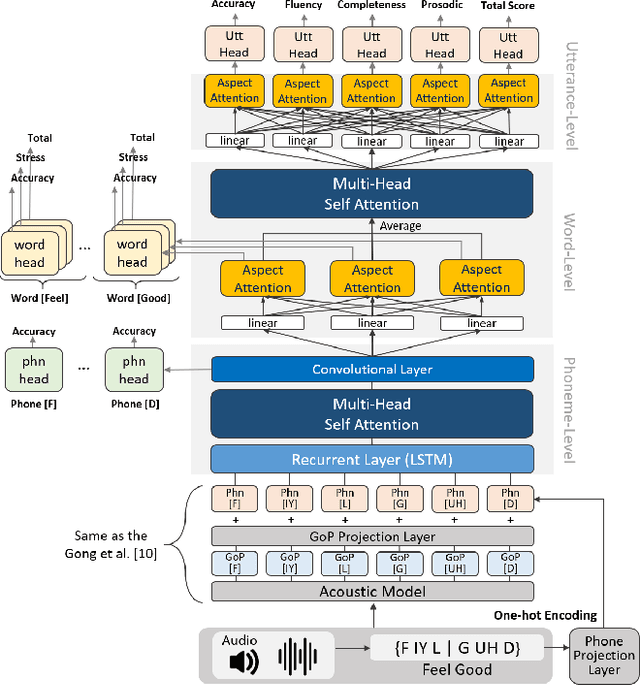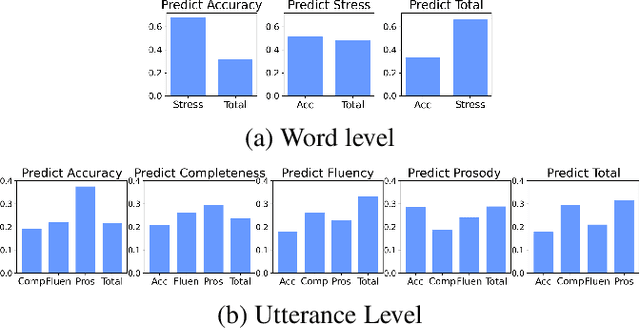Hierarchical Pronunciation Assessment with Multi-Aspect Attention
Paper and Code
Nov 15, 2022



Automatic pronunciation assessment is a major component of a computer-assisted pronunciation training system. To provide in-depth feedback, scoring pronunciation at various levels of granularity such as phoneme, word, and utterance, with diverse aspects such as accuracy, fluency, and completeness, is essential. However, existing multi-aspect multi-granularity methods simultaneously predict all aspects at all granularity levels; therefore, they have difficulty in capturing the linguistic hierarchy of phoneme, word, and utterance. This limitation further leads to neglecting intimate cross-aspect relations at the same linguistic unit. In this paper, we propose a Hierarchical Pronunciation Assessment with Multi-aspect Attention (HiPAMA) model, which hierarchically represents the granularity levels to directly capture their linguistic structures and introduces multi-aspect attention that reflects associations across aspects at the same level to create more connotative representations. By obtaining relational information from both the granularity- and aspect-side, HiPAMA can take full advantage of multi-task learning. Remarkable improvements in the experimental results on the speachocean762 datasets demonstrate the robustness of HiPAMA, particularly in the difficult-to-assess aspects.
 Add to Chrome
Add to Chrome Add to Firefox
Add to Firefox Add to Edge
Add to Edge